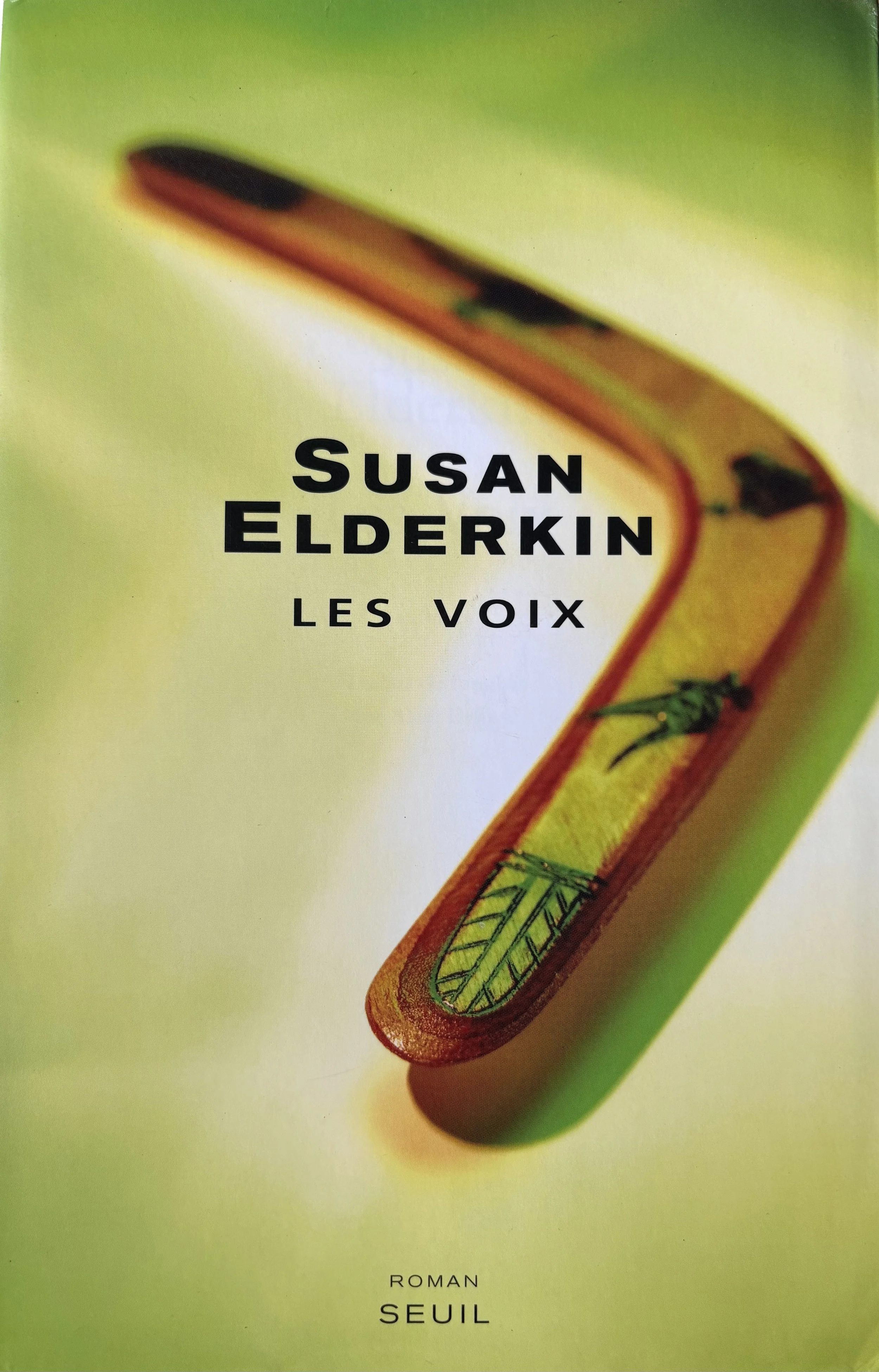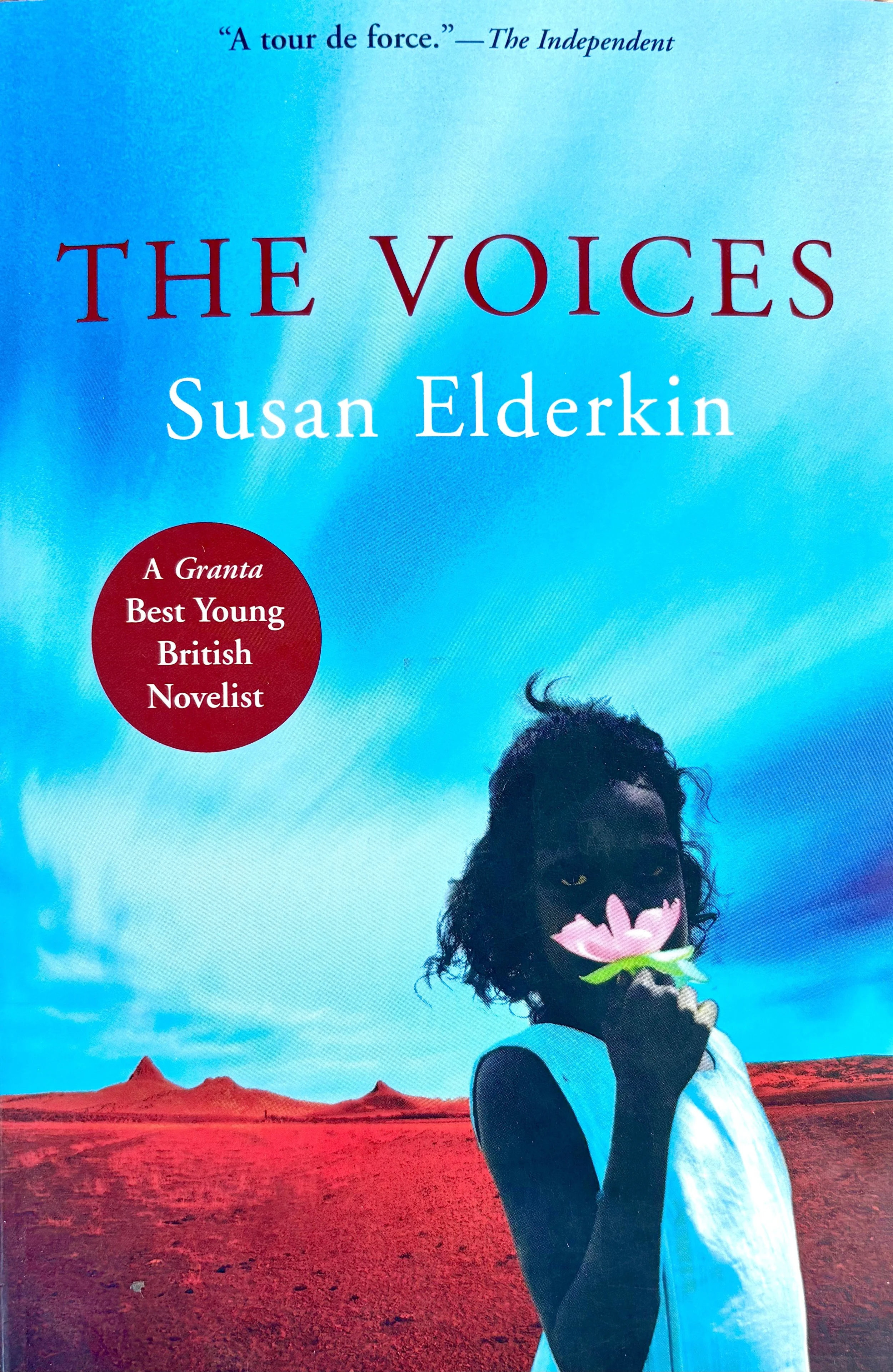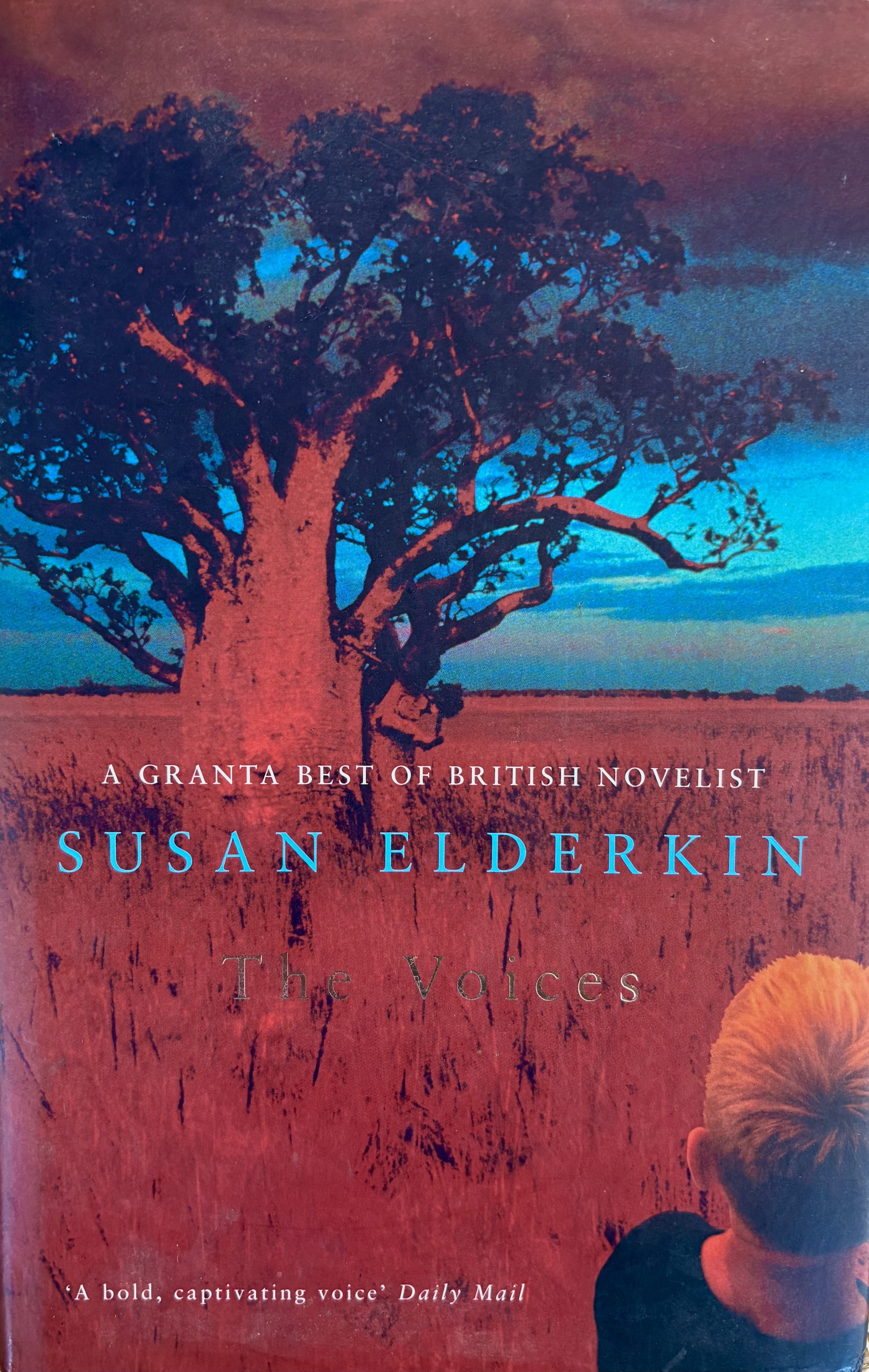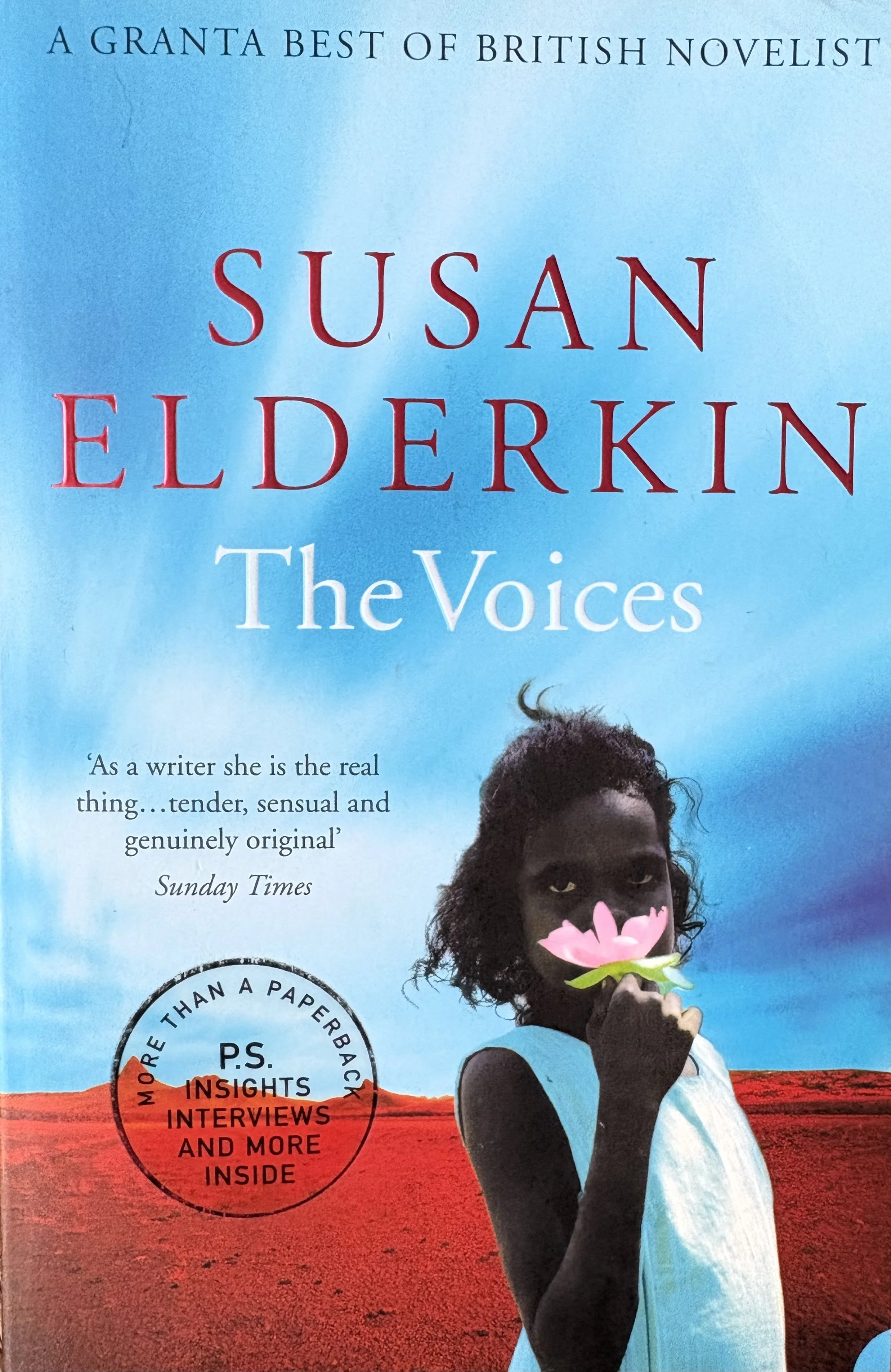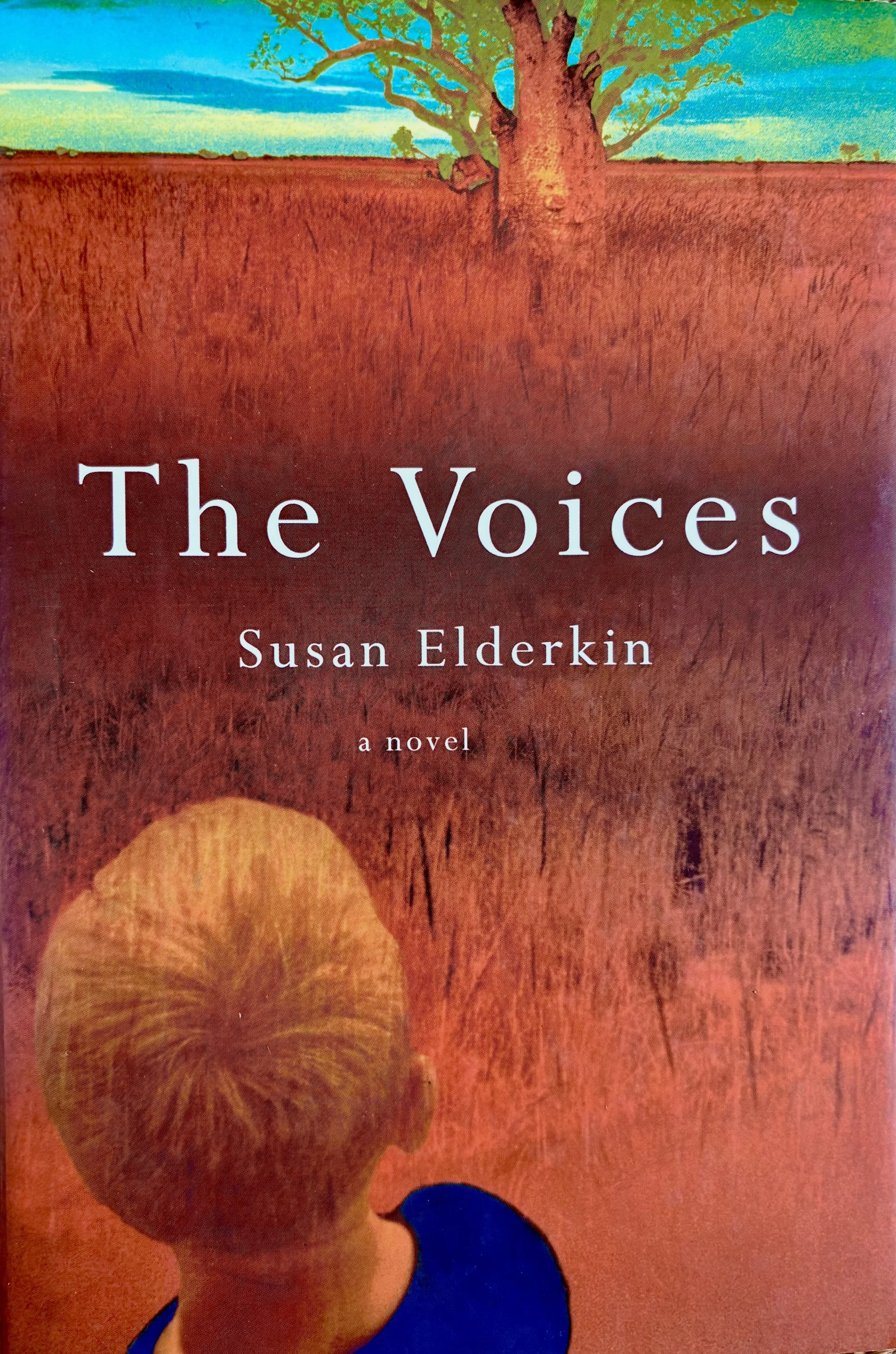THE VOICES
THE VOICES

Susan’s second novel, The Voices (Fourth Estate, 2003), tells the story of 13-year-old Billy, a white Australian boy who hears the singing of an Aboriginal girl, Maisie, and finds himself drawn to her in a way that he does not understand. Set against the remote, blood-red landscape of Western Australia, it is a haunting exploration of what happens when one culture attempts to assimilate another.
Shortlisted for the International IMPAC Dublin Literary Award, The Orange Prize (now The Women’s Prize for Fiction) and the Ondaatje Prize (for books which best evoke “the spirit of a place”), The Voices was also translated into other languages.
The Guardian
“What is remarkable is Elderkin’s ability to conjure up the Australian outback with such confidence... a book to be admired.”
Time Out
“Susan Elderkin’s first novel, Sunset Over Chocolate Mountains, won her a devoted following. The Voices doesn’t disappoint.”
The Spectator
“An outstanding novel, among the best I have read in years.”
The Melbourne Age
“Elderkin exhibits real talent: her prose dazzles, the metaphors and similes shimmering off the page… The use of Aboriginal spirits and stories is, of course, open to the charge of cultural appropriation, something Elderkin acknowledges in the postscript essay that accompanies this beautifully produced book. However, her work does not proclaim an intimate understanding of Aboriginal culture. Unlike, for example, The Songlines, which implies that it can explain Aboriginal rites and practices from the inside, Elderkin’s work displays no such arrogance or insensitivity. This is a whimsical, surreal, melancholic tale… [with] a poignancy and urgency that cannot be ignored.”
